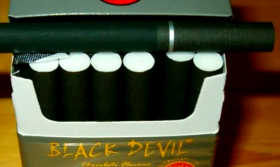The Feel of a Baby’s Skin—More Precious Than Smoking
Introduction
Every smoker knows the struggle of quitting. The cravings, the withdrawal symptoms, and the psychological dependence make it one of the hardest habits to break. But what if the key to quitting lies not in fear of disease or death, but in something far more beautiful—the soft, delicate touch of a baby’s skin?

Imagine holding a newborn, their tiny fingers curling around yours, their skin impossibly smooth and pure. Now imagine missing out on that moment because you had to step outside for a cigarette. Or worse, exposing that fragile life to the toxins lingering on your clothes and breath.
This article explores why quitting smoking is not just about health—it’s about reclaiming the most precious moments in life.
The Science Behind Smoking and Sensory Loss
Smoking dulls the senses. Nicotine and other chemicals in cigarettes damage taste buds, reduce the sense of smell, and even alter touch sensitivity. Over time, smokers become less attuned to subtle sensations—like the warmth of a hug or the gentle brush of a child’s hand.
A study published in Nicotine & Tobacco Research found that smokers have a diminished ability to detect fine textures compared to non-smokers. This means that the very act of smoking robs you of fully experiencing life’s most tender moments.
A Baby’s Skin: The Ultimate Motivation to Quit
1. The Irreplaceable Bond
Babies rely on touch as their first form of communication. Skin-to-skin contact reduces stress, regulates their heartbeat, and strengthens emotional bonds. If you’re a parent or grandparent, do you really want your addiction to come between you and that connection?
2. Thirdhand Smoke: The Invisible Danger
Even if you don’t smoke near a baby, toxins cling to your clothes, hair, and skin—a phenomenon known as thirdhand smoke. Research from Pediatrics shows that infants exposed to these residues face higher risks of respiratory infections and developmental issues.
3. The Long-Term Impact
Children of smokers are more likely to develop asthma, ear infections, and even behavioral problems. By quitting, you’re not just improving your own health—you’re giving the next generation a cleaner, safer future.
How Quitting Smoking Restores Life’s Sweetest Sensations
1. Rediscovering Taste and Smell
Within days of quitting, your senses begin to recover. Food tastes richer, flowers smell sweeter, and yes—holding a baby feels even more magical when you’re not numbed by nicotine.
2. Being Fully Present
No more excusing yourself for a smoke break during family time. No more worrying about smelling like an ashtray when you cradle your grandchild. Freedom from cigarettes means freedom to savor every second.
3. Setting a Powerful Example
Children mimic what they see. If they grow up watching you choose health over addiction, they’ll be far less likely to start smoking themselves.
Practical Steps to Quit—For Them
1. Replace the Habit with Love
Every time you crave a cigarette, hold your child (or a photo of them). Let their innocence remind you why you’re quitting.
2. Cleanse Your Environment
Wash all clothes, deep-clean your home, and remove smoke odors. This not only protects the baby but also reinforces your commitment.
3. Seek Support
Join a quit-smoking program, use nicotine replacement therapy, or talk to a doctor. You don’t have to do it alone.
Conclusion: A Life Beyond Smoke
The feel of a baby’s skin is more than just softness—it’s purity, trust, and unconditional love. Smoking steals that from you in ways you might not even realize.
But the moment you quit, you reclaim something priceless: the ability to experience life’s most tender moments without barriers. Every kiss, every cuddle, every tiny hand grasping yours becomes infinitely sweeter when you’re free from cigarettes.
So ask yourself: Is a cigarette really worth missing out on that?










